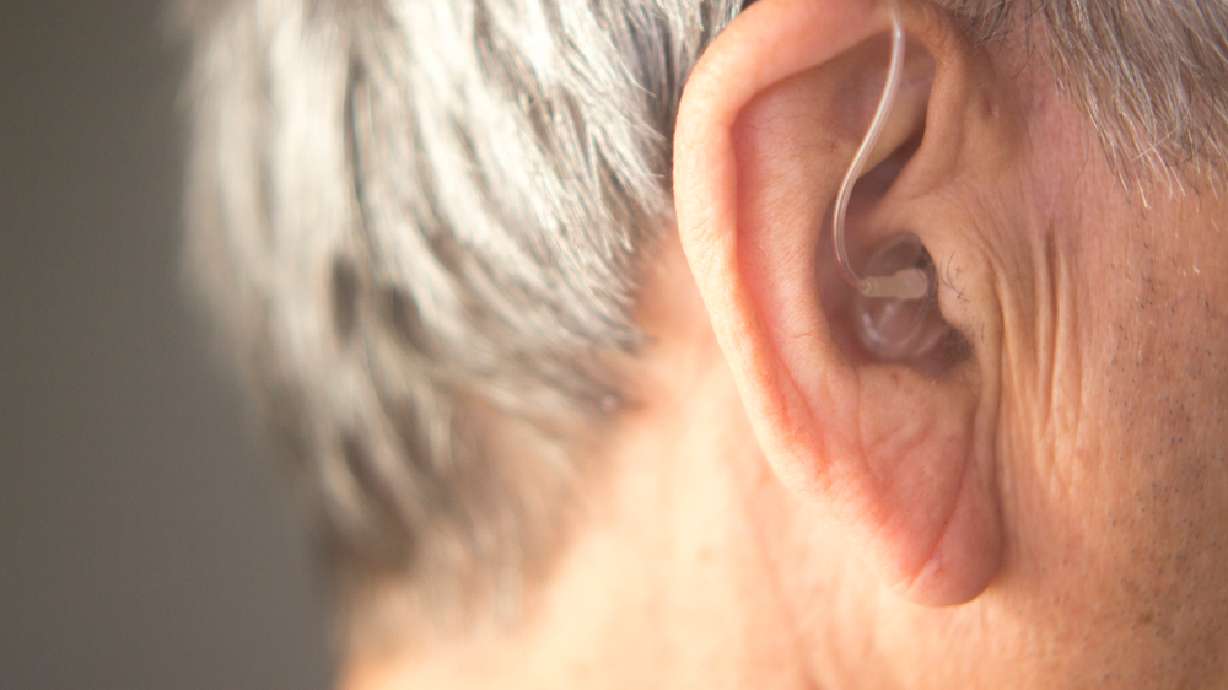Estimated read time: 3-4 minutes
This archived news story is available only for your personal, non-commercial use. Information in the story may be outdated or superseded by additional information. Reading or replaying the story in its archived form does not constitute a republication of the story.
You already know some basic ways to increase longevity. Eat a well-balanced diet. Exercise. Get plenty of sleep. Don't smoke. Be social. Learn to manage your stress levels. These are all pretty straightforward and unsurprising.
Now you can add another item to that list: Wear hearing aids if you need them.
That's right — hearing aids don't just help you hear better. They can actually help you live longer. That's according to a recent study from The Lancet Healthy Longevity journal.
Hearing aids may increase your lifespan
Dr. Janet Choi, an otolaryngologist with the University of Southern California's Keck School of Medicine, was the lead researcher for the study. She and her colleagues assessed 9,885 adults who were 20 years old or older, of whom 1,863 had experienced hearing loss. Among those with hearing loss, only 237 reported regularly using hearing aids. The rest reported wearing their hearing aids less than once a month.
After tracking them for 10 years, the researchers concluded that those who regularly wore their hearing aids had a 24% lower risk of mortality than those who never wore them. This was true regardless of age, ethnicity, medical history, education or income.
Choi and her team had expected there to be a link between higher mortality and lack of hearing aid use, but they were surprised that the difference was so high.
"These results are exciting because they suggest that hearing aids may play a protective role in people's health and prevent early death," Choi said in a news release for USC.

Hearing loss is a serious medical condition that has the most successful outcomes by following the medical model of patient pre-education, in-depth testing by qualified professionals, top-tier technology, treatment verification and consistent follow-up care. This is the model used at clinics certified and endorsed by Excellence in Audiology.
"At our clinics, we understand that hearing loss affects not only a patient's cognition, health, and over-all well-being, it affects their spouses and families as well. By providing best-practice care, we are able to help patients improve their own quality of life as well as improve their family relationships every day in our clinics," Dr. Keith Darrow says, Harvard-trained neuroscientist and founder of Excellence in Audiology.
How hearing loss affects your health
It's important to note that hearing loss alone is not going to cause someone to die, but it can lead to several risk factors if it's left untreated.
Doctors and researchers have long been studying the many ways that hearing loss can negatively impact a person's overall health. A 2016 study published in PubMed Central linked hearing loss to "more rapid progression of cognitive decline and incidental dementia." These effects were "highly prevalent" in older adults.
"Brain scans show us that hearing loss may contribute to a faster rate of atrophy in the brain," Dr. Frank Lin, a professor of otolaryngology at Johns Hopkins University says. "Hearing loss also contributes to social isolation. You may not want to be with people as much, and when you are you may not engage in conversation as much. These factors may contribute to dementia."
{#scans}
Don't wait to treat your hearing loss
Darrow recommends people schedule a hearing exam if they answer yes to any of these questions:
- Do you think you hear ok but don't always understand every word?
- Do you turn up the volume on the tv louder than others prefer?
- Do people seem to mumble?
- Do you struggle to understand women and children's voices?
- Do your ears ring or buzz constantly?
If you answer yes to any of these questions, watch this informative educational video and request a consultation at one of the Excellence in Audiology clinics conveniently located across the state of Utah.









